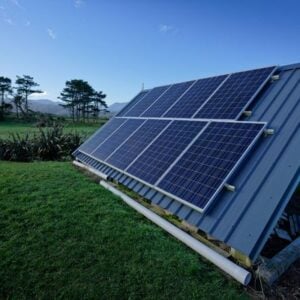Libya has officially commissioned its first solar power facility in the remote southeastern town of Kufra, located deep in the Sahara Desert near Egypt, Sudan, and Chad. Developed by Infinity Libya in partnership with the Al-Jouf Free Zone, the 1 MW installation became fully operational just eight months after the agreement was signed in September 2024. The plant’s annual output, estimated at around 2,182 megawatt-hours, will provide clean electricity to the industrial hub of the Al‑Jouf Free Zone, powering approximately 500 to 1,000 households depending on consumption levels. The project also brings significant environmental benefits, displacing roughly 545,000 liters of diesel each year and cutting around 1,300 metric tons of carbon dioxide emissions annually.
This initiative reflects Libya’s broader ambition to diversify its energy supply, despite being one of Africa’s largest oil holders with 48 billion barrels of proven reserves as of early 2024, accounting for roughly 41% of the continent’s total. Rising electricity demand, projected to reach 20 GW by the end of 2025, has accelerated the push for sustainable power solutions. Libya’s energy policy aims for 4 GW of renewable capacity by 2035, targeting renewables to account for about 20% of the country’s energy mix. A newly announced national solar program plans a $10 billion investment in solar infrastructure to achieve 4 GW by 2035, which could meet roughly 40% of national electricity needs.
The national program includes flagship projects such as the Kufra station, a 500 MW plant in Saddada developed with TotalEnergies, a Ghadames project financed by AG Energy, rooftop solar initiatives totaling 500 MW, and a large 1,500 MW development in eastern Libya involving PowerChina and EDF. In Kufra, the facility is fully operated by locally trained Libyan engineers, highlighting the project’s focus on building domestic technical expertise and creating regional employment opportunities.
Infinity Libya’s leadership hailed the Kufra plant as a model for sustainable development and local collaboration. Chairman Mohamed Ismail Mansour emphasized its role as a turning point for renewable energy, while Managing Director Fahd Benhalim noted that it sets the stage for expanding clean energy into sectors such as agriculture, oil and gas, and industry. Although modest compared to Libya’s vast oil infrastructure, the successful delivery of the Kufra solar plant establishes a precedent for locally driven renewable projects and signals a shift toward harnessing the desert sun as a central component of Libya’s sustainable energy future.







